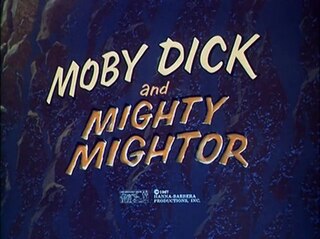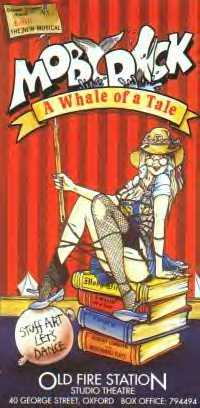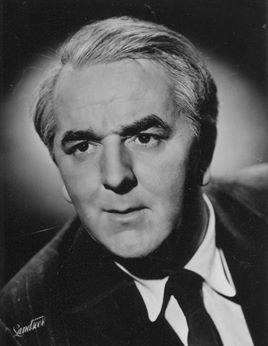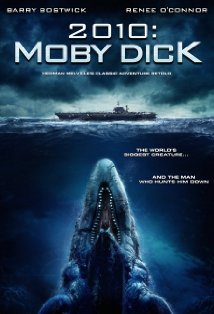Related Research Articles

Moby-Dick; or, The Whale is an 1851 novel by American writer Herman Melville. The book is the sailor Ishmael's narrative of the maniacal quest of Ahab, captain of the whaling ship Pequod, for vengeance against Moby Dick, the giant white sperm whale that bit off his leg on the ship's previous voyage. A contribution to the literature of the American Renaissance, Moby-Dick was published to mixed reviews, was a commercial failure, and was out of print at the time of the author's death in 1891. Its reputation as a Great American Novel was established only in the 20th century, after the 1919 centennial of its author's birth. William Faulkner said he wished he had written the book himself, and D. H. Lawrence called it "one of the strangest and most wonderful books in the world" and "the greatest book of the sea ever written". Its opening sentence, "Call me Ishmael", is among world literature's most famous.

Ishmael is a character in Herman Melville's Moby-Dick (1851), which opens with the line "Call me Ishmael." He is the first-person narrator of much of the book. Because Ishmael plays a minor role in the plot, early critics of Moby-Dick assumed that Captain Ahab was the protagonist. Many either confused Ishmael with Melville or overlooked the role he played. Later critics distinguished Ishmael from Melville, and some saw his mystic and speculative consciousness as the novel's central force rather than Captain Ahab's monomaniacal force of will.

Moby Dick and Mighty Mightor is an American Saturday morning animated television series produced by Hanna-Barbera Productions that ran on CBS from September 9, 1967 to January 6, 1968, airing in reruns until September 6, 1969. Despite Moby's name coming first, he had only one short per half-hour episode, sandwiched between two with Mightor. The same structure was used the previous season for Frankenstein Jr. and The Impossibles.

James Robertson Justice was an English actor. He is best remembered for portraying pompous authority figures in comedies including each of the seven films in the Doctor series. He also co-starred with Gregory Peck in several adventure movies, notably The Guns of Navarone. Born in south-east London to a Scottish father, he became prominent in Scottish public life, helping to launch Scottish Television (STV) and serving as Rector of the University of Edinburgh.

Mocha Dick was a male sperm whale that lived in the Pacific Ocean in the early 19th century, usually encountered in the waters near Mocha Island, off the central coast of Chile. American explorer and author Jeremiah N. Reynolds published his account, "Mocha Dick: Or The White Whale of the Pacific: A Leaf from a Manuscript Journal" in 1839 in The Knickerbocker. Mocha Dick was an albino and partially inspired Herman Melville's 1851 novel Moby-Dick.

Moby Dick is a 1956 period adventure drama film directed and produced by John Huston, adapted by Huston and Ray Bradbury from Herman Melville's 1851 novel Moby-Dick. It stars Gregory Peck as Captain Ahab, Richard Basehart as Ishmael, and Leo Genn as Starbuck, with supporting performances by James Robertson Justice, Harry Andrews, Friedrich von Ledebur, Bernard Miles, Noel Purcell and Orson Welles. The film was a co-production of the United Kingdom and the United States.

Green Shadows, White Whale is a 1992 novel by Ray Bradbury. It gives a fictionalized account of his journey to Ireland in 1953–1954 to write a screen adaptation of the novel Moby-Dick with director John Huston. Bradbury has said he wrote it after reading actress Katharine Hepburn's account of filming The African Queen with Huston in Africa. The title itself is a play on Peter Viertel's novel White Hunter, Black Heart, which is also about Huston.
Hakugei: Legend of the Moby Dick is a Japanese animated television series, based on Herman Melville's 1851 novel Moby-Dick. However, this adaptation used futuristic outer space as the setting, with "whales" being large abandoned spaceships instead. It aired from 1997 to 1999, albeit with a suspension of new episodes from November 1997 to October 1998. The series ran for 26 episodes, which have been released on DVD in the US by ADV Films, spread across six discs.

Moby Dick is a musical with a book by Robert Longden, and music and lyrics by Longden and Hereward Kaye, first staged in 1990. The plot follows the anarchic and nubile girls of St. Godley's Academy for Young Ladies who, determined to save the institution from bankruptcy, decide to stage Herman Melville's classic 1851 novel in the school's swimming pool. The musical is a mixture of high camp, music hall-style smut, and wild anachronism overflowing with double entendres; the lead role of headmistress/Captain Ahab is portrayed by a man in drag.
Moby-Dick is an 1851 novel by Herman Melville that describes the voyage of the whaleship Pequod, led by Captain Ahab, who leads his crew on a hunt for the whale Moby Dick. There have been a number of adaptations of Moby-Dick in various media.

Moby Dick is a 1930 American pre-Code film from Warner Bros., directed by Lloyd Bacon, and starring John Barrymore, Joan Bennett and Walter Lang. The film is a sound remake of the 1926 silent movie, The Sea Beast, which also starred Barrymore. It is the first film adaptation of Herman Melville's 1851 novel Moby Dick that includes a soundtrack.

Joseph Tomelty was an Irish actor, playwright, novelist, short-story writer and theatre manager. He worked in film, television, radio and on the stage, starring in Sam Thompson's 1960 play Over the Bridge.

Patrick Joseph Noel Purcell was a distinguished Irish actor of stage, screen, and television. He appeared in the 1956 film Moby Dick and the 1962 film Mutiny on the Bounty.
"Bob Dylan's 115th Dream" is a song by Bob Dylan, released on his fifth album, Bringing It All Back Home. In 2005, Mojo magazine rated the song as the 68th greatest Bob Dylan song.

Moby Dick is a 2010 film adaptation of Herman Melville's 1851 novel Moby-Dick. The film is an Asylum production, and stars Barry Bostwick as Captain Ahab. It also stars Renee O'Connor, Michael B. Teh, and Adam Grimes and is directed by Trey Stokes.
Moby Dick is a Canadian-German television miniseries based on Herman Melville's 1851 novel of the same name, produced by Tele München Gruppe, with Gate Film, In association with RTH/ORF. Starring William Hurt as Captain Ahab, it was directed by Mike Barker with a screenplay by Nigel Williams. The cast also includes Ethan Hawke as Starbuck, Charlie Cox as Ishmael, Eddie Marsan as Stubb, Gillian Anderson as Ahab's wife, Elizabeth and Donald Sutherland as Father Mapple.

Moby Dick is a 1998 American television miniseries directed by Franc Roddam, written by Roddam, Anton Diether, and Benedict Fitzgerald, and executive produced by Francis Ford Coppola. It is based on Herman Melville's 1851 novel of the same name. It was filmed in Australia in 1997 and first released in the United States in 1998. The miniseries consisted of two episodes, each running two hours with commercials on March 15 and 16 of 1998 on the USA Network. This is Gregory Peck's final on-screen role.

Captain Ahab is a fictional character and one of the protagonists in Herman Melville's Moby-Dick (1851). He is the monomaniacal captain of the whaling ship Pequod. On a previous voyage, the white whale Moby Dick bit off Ahab's leg, and he now wears a prosthetic leg made out of whalebone. The whaling voyage of the Pequod ends up as a hunt for revenge on the whale, as Ahab forces the crew members to support his fanatical mission. When Moby Dick is finally sighted, Ahab's hatred robs him of all caution, and the whale drags him to his death beneath the sea and sinks the Pequod.
Pip, short for Pippin, is the African-American cabin-boy on the whaling-ship Pequod in Herman Melville's 1851 novel, Moby-Dick. When Pip falls overboard he is left stranded in the sea, and rescued only by chance and becomes "mad." The book's narrator, Ishmael, however, thinks that this "madness" gives Pip the power to see the world as it is. Pip is first described as "insignificant," but is the only member of the crew to awaken feelings of humanity in Ahab, the ship's monomaniacal captain.